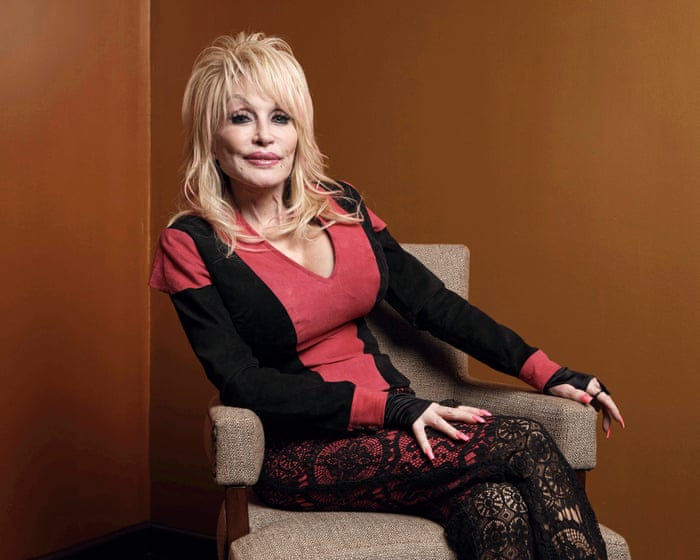I’ll be honest: I’ve always preferred The Simpsons over South Park. Not that I have anything against South Park—I’ve seen plenty of episodes over its nearly 30-year run, and I really enjoyed the 1999 movie. But while I haven’t kept up with every single Simpsons episode either, the characters have stuck with me enough that I still enjoy both old and new episodes. South Park, by comparison, has a narrower cast, and as the show itself pointed out years ago, it’s tough for a satirical animated series to cover ground The Simpsons hasn’t already explored. South Park’s political angle also often feels less varied than the warmer (though still sharp) social commentary of Matt Groening’s show. There’s a fine line between broad satire and libertarian grumpiness.
And yet, South Park’s 27th season has done something very few shows—animated or topical—have managed: it’s actually funny when taking aim at Trump’s second administration. It’s not that the White House is above criticism—quite the opposite. The Trump administration’s blend of stupidity and cruelty is so extreme that it’s hard to exaggerate for comedy, even dark comedy. Since his second term began, things have only gotten bleaker; jokes that felt tired by the end of 2020 are now being recycled with a nastier edge, and it takes more to get a cathartic laugh these days.
As a comedy fan, this often leads to avoidance. The occasional jabs from The Simpsons don’t hit as hard as they did with presidents I liked a lot more. I watch SNL every week but usually find James Austin Johnson’s spot-on Trump impression strangely flat (sometimes he even seems tired of doing it). I respect Stephen Colbert, but I’ve never sought out his Trump material—I don’t need more “clapter” (that applause-seeking comedy that wants approval more than laughs). South Park’s creators, Trey Parker and Matt Stone, seemed to feel the same; back in 2017, Parker said they were already bored of mocking Trump, and that caused some controversy.
So how has South Park’s return to Trump humor worked so well this season? A big part of it is Parker and Stone’s refusal to pander or grandstand. They’ve always hated anything that feels pretentious, though in the past that sometimes came off as preachy itself, with speeches at the end of episodes that could sound as moralizing as what they were mocking. This time, though, there’s less sermonizing—just satisfyingly mean caricatures of figures who deserve it, like Trump, JD Vance, and Homeland Security Secretary Kristi Noem. Some of their past roasts bordered on bullying, but here the targets feel deserving.
Some of the mockery comes through South Park’s own style. Trump isn’t imitated with voice or animation—he’s shown through repurposed photos, with the same voice and technique used for Saddam Hussein in the South Park movie. He’s even given the same love interest: a buff, put-upon Satan stuck in another toxic relationship. Calling Trump a wannabe dictator isn’t new, but there’s something satisfying about Parker and Stone using their own tools to link him to Hussein. If they thought the comparison was over-the-top, they’d be mocking it—not making it. You can feel the real spite behind these portrayals.South Park has depicted Kristi Noem as a dog-killing extremist whose polished appearance seems to require constant upkeep as she leads a squad of aggressive ICE agents.
Lewd, crude, and politically sharp: that’s South Park’s long history of stirring controversy.
Not all of this season’s satire revolves around real public figures. Unlike the sprawling, well-developed worlds of The Simpsons’ Springfield or even King of the Hill’s Arlen, South Park’s cast is flexible enough to transform Randy—Stan’s trend-chasing father—into a ketamine-microdosing tech bro obsessed with the hollow comfort of ChatGPT. This was the focus of the latest episode, which sidelined most of the main child characters. Surprisingly, even perennial favorite Cartman has been used more sparingly this season. In the second episode, the show got meta as the id-driven, arguably evil kid raged against podcasters who stole his schtick: weaponizing hate under the guise of debate, where the aggressor always declares victory. Giving Cartman the “master debater” title—alongside a clear stand-in for figures like Charlie Kirk or Ben Shapiro—somehow makes this petty behavior funny without celebrating it.
A diehard South Park fan might dismiss this praise as coming from a fair-weather viewer who only enjoys the show when it targets the “right” people. Maybe that’s true, but it’s certainly easier to relish mocking J.D. Vance as a meme-faced Fantasy Island sidekick than, say, accusing George Lucas and Steven Spielberg of “raping” culture. It might be wishful thinking to hope Parker and Stone could actually shift public opinion on tech bros, debate-obsessed podcasters, or Trump-aligned figures, especially among their core male audience. Still, it’s refreshing to see free-speech advocates aiming their satire at something other than the “wokeness” boogeyman. While countless comedians complain about being silenced, Parker and Stone seem keenly aware of their privileged platform (and, as Paramount contractors, what real corporate interference looks like). In a climate where Trump’s opponents often seem afraid to confront him directly, some well-earned, laugh-at-them meanness feels like a surprising breath of fresh air.
Frequently Asked Questions
Of course Here is a list of FAQs about South Parks significance in the Trump 20 era based on the analysis by Jesse Hassenger
Beginner General Questions
1 What does Trump 20 era mean
It refers to the period of American politics and culture since Donald Trumps presidency began in 2016 and continues through his ongoing influence including his 2024 campaign
2 Why is South Park considered so significant during this time
Because the show has masterfully satirized the extreme polarization both sides absurdity and chaotic media landscape that defines this era often predicting cultural shifts before they happen
3 I havent watched South Park in years Is it still relevant
Yes arguably more than ever The show has evolved from just shocking humor to a sharp timely commentary on current events often releasing episodes about major news stories within days
Questions About Its Role Commentary
4 How does South Park handle political satire without picking a side
Its famous This is what people actually sound like approach mocks everyone equally It points out the hypocrisy and absurdity on both the far left and the far right making it a unique voice in a divided culture
5 Whats an example of a South Park episode that captures this era
The Season Finale specials are perfect examples They directly tackle themes like mounting political violence the inability to have civil discourse and the feeling of being trapped in a neverending ridiculous cultural war
6 Has the shows target changed since it started
Originally it targeted easy broad targets like celebrities and general stupidity Now it focuses on the mechanics of outrage itselfhow information spreads how people perform their identities online and why everyone seems so angry all the time
Advanced Critical Questions
7 Some critics say South Parks both sides satire is a copout Is that fair
This is a key debate Supporters say it holds a mirror to societys flaws without bias Critics argue that equating both sides can sometimes minimize the realworld power imbalances and consequences of certain actions
8 How has the show adapted its production to stay so current
They use an incredibly fast sixday production cycle This allows them to write animate and air an episode about



